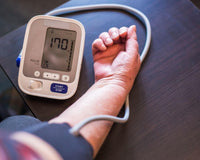Liothyronine Side Effects, Weight Loss, And Dosage
Liothyronine is a common prescription drug whose uses include the treatment of hypothyroidism and other thyroid diseases. Liothyronine can also help with weight loss in certain cases. It is often available as a generic drug or under the brand name Cytomel. In the following article we review the uses, side effects, interactions and dosage of liothyronine.
What Is Liothyronine Used For?
Liothyronine is a prescription medication used to treat hypothyroidism, a condition wherein the thyroid gland does not produce enough thyroid hormone. In certain cases, liothyronine can also be used to treat thyroid diseases. Low thyroid hormone levels have been linked to growth defects and other negative side effects. Having enough thyroids helps your body stay healthy.
Liothyronine Weight Loss
How Does Liothyronine Work?
The mechanism of action of liothyronine involves the replacement of endogenous thyroid hormone and prevention of thyroid disease. Liothyronine works on the hormone by controlling DNA transcription and protein synthesis.
Liothyronine Side Effects
Like many prescription medications, liothyronine does come with some associated side effects. Some of these side effects are more serious and less common than others.
Liothyronine Common Side Effects
The most common side effects of liothyronine include headache and mood changes. For a complete list of side effects, see below.
- Headache
- Irritability
- Nervousness
- Increased sweating
- Menstrual changes
- Vomiting
- Heat intolerance
If these side effects are mild, they should disappear within a few days. If symptoms persist for longer than week, contact your doctor or another medical professional.
Liothyronine Serious Side Effects
Some side effects of liothyronine are more serious and may require medical attention. Talk to your doctor immediatley if you experience any of the following symptoms. Call 911 if you think your symptoms may be life threatening.
- Anxiety
- Arm and jaw pain
- Crying
- Chest pain or discomfort
- Decreased bone mineral density
- Decreased urine output
- Fainting
- Irregular breathing
- Stomach cramps
- Slow heartbeat
- Depression
- Weight gain or loss
- Rapidly changing moods
How To Take Liothyronine
Before taking liothyronine, you may want to consider following these recommendations and suggestions. Always talk to your doctor before taking any form or dosage of liothyronine.
Take Liothyronine As Directed
Take liothyronine as directed by your healthcare professional or doctor.
The dose of this medicine will be different for different patients. Follow your doctor's orders or the directions on the label of your prescription. The following information includes only the average doses of this medicine. If your dose is different, do not change it unless your doctor tells you to do so.
Liothyronine Dosage
Your dosage for liothyronine may depend on the following factors, among others:
- Your age
- Your weight
- Severity of your condition
- Time between doses
- Number of doses each day
Dosage For Hypothyroidism
Adult: 25mg one a day. Dosage may be adjusted at the recommendation of your doctor.
Dosage For Thyroid Cancer:
Adult: Dosage may vary and should be determined by doctor.
Dosage For Thyroid Problem Diagnosis:
Adult: 75 to 100 micrograms once a day for 7 days. Dosage may be adjusted at the recommendation of your doctor.
Liothyronine Dosage With Levothyroxine
If your doctor recommends you take liothyronine and you already take levothyroxine, your dosage for both medications may be adjusted. The usual recommended starting dose is 30 mg of Levothyroxine and Liothyronine, with increments of 15 mg every 2 to 3 weeks.
Liothyronine Versus Levothyroxine
Liothyronine is often confused with the medication levothyroxine, as they are both used to treat hypothyroidism. They are different in that liothyroxine works on the thyroid hormone thyroxine, while levothyronine works on the thyroid hormone triothyronine.
What Are Liothyronine Brand Names?
The brand names of liothyronine are:
- Cytomel
Liothyronine Warnings
Tell your doctor and pharmacist if you are allergic to liothyronine, thyroid hormone, or any other thryoid medication. Ask your pharmacist for a list of ingredients if you are unsure of your allergies.
If you currently take cholestyramine, do not take liothryonine within 5 hours of taking cholestyrmaine.
Tell your doctor if you have or have ever had diabetes; cardiovascular disease such as high blood pressure, atherosclerosis (hardening of the arteries), chest pain (angina), or irregular heartbeat, or have ever had a heart attack.
Tell your doctor if you are pregnant or plan to become pregnant. You should not take liothyronine while pregnant.
Liothyronine And Brain Tumors
Certain online studies and rumors have linked taking liothyronine to the development of brain tumors. This, however, has not been proven to be true in any patients as of 2022.
Liothyronine Side Effects, Weight Loss, And Dosage: Summary
Liothyronine is a prescription medication that can be used to treat hypothyroidism, as well as other conditions that can affect the thyroid.








